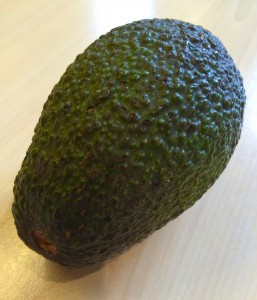The first time I heard the word “avocado” was in the 1980s, when it was used to describe the bilious pea colour unfortunately popular in many bathrooms.
The first time I tried avocado was in the 1990s, sliced into a sandwich from a trendy delicatessen in Islington. I couldn’t see what all the fuss was about. It was just cold, green oily mush, like someone had dropped a Volvo on Kermit. The advent of guacamole made it tastier, but how excited can one get over a dip?
I was wrong. Avocados are an anti-ageing nutritionist’s kryptonite. In fact the big green berry is an all-round superfood. Your typical Hass is loaded with antioxidants, vitamins and minerals that can benefit your body, inside and out.
First, the antioxidants. Avocados contain vitamins A, C and E – ACE in name and ACE in nature – which all prevent our billions of cells from breaking down and going rogue, with the added benefits of super skin and lustrous locks.
They are also high in lutein and zeaxanthin, the “Greek twins” that are key for eye health and lower the risk of cataracts and deterioration in our senior years.
Further, avocados are relatively rich in the blood-and-bone-booster vitamin K, as well as the B vitamins. These help break down our food and maintain the nervous system and liver as well as, yet again, our eyes, skin and hair.
It gets better. One avocado has the potassium content of two bananas. This vital mineral is involved in many key functions: water levels, waste disposal, nerve and muscle action, and insulin secretion. It also reduces blood pressure – and increases mental alertness. Impressive.
Brain function is further boosted by the avocado’s rich amount of lecithin, often used as an additive in chocolate. This also yields the essential nutrient choline, which may help reduce acne, liver disease, thickened arteries and cholesterol levels. Choline may also lower the risk of complications during pregnancy and some neurological birth defects. Avocados are a pre-cradle to the grave food.
However, they used to get a bit of a bad press because they contain about 20 per cent fat. Yet now avocados are appreciated as an excellent source of monounsaturated fatty acids, second only to olives.
Like olives, their oils include oleic acid, which may reduce inflammation and have beneficial effects on cancer genes. They also have linoleic acid, which again could help lower cholesterol and boost skin and hair. And all this internal lubrication can soothe the pain of ulcers.
And not only is avocado itself nutritious, it can also boost the nutrients of other plant foods. Eating them with vegetables can dramatically increase your intake of antioxidants. This is because some nutrients, like vitamins A, D, E and K, are “fat soluble” and must be combined with fat for the body to use them – a vital reason to always include healthy fats when you eat veggies. Without them, a lot of nutrients are wasted.
Even better, avocados are excellent for low blood sugar as they contain mannoheptulose, which slows down insulin secretion and helps stabilise blood sugar levels. So they are great for weight loss plans as they help satisfy hunger for longer, as well as being high in fibre and low in carbohydrates. Avocados are also a joy for food combiners as they mix with proteins and starches.
Overall, one 100g serving – about half an avocado – provides 160 calories, most of which comes from 14.7g of easily digested fat. Just 2.8g of that fat is polyunsaturated and only 2.1g saturated.
There are also 2g of protein, as well as 8.5g of carbohydrates of which a superb 6.7g is fibre. This indigestible plant matter can contribute to weight loss, reduce blood sugar spikes and ward off disease. A quarter of this fibre is soluble, which feeds the friendly gut bacteria in the intestine, vital for tip-top body function.
Finally, avocados can reportedly lower LDL (“bad”) cholesterol levels and reduce blood triglycerides (fat in the blood) and increase HDL (“good”) cholesterol – good news for those prone to heart problems and diabetes.
So what more could you want? Weight loss friendly, heart healthy, body and beauty boosters. And, with a shot of lemon or as guacamole, I can finally admit that avocados taste…well, lush.
I strongly advocate avocados.



Comments are closed.